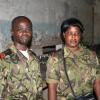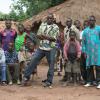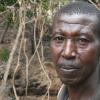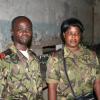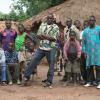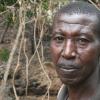Cameroon
P1-A: Matters for crises: Asian enterprises in the mining sector of Africa
S2-A: Handelsnetzwerke und Migration zwischen Afrika und Asien
AFRASO Publications
Talks and Lectures
;
Trade, crisis and cultural entrepreneurship in the Niger Delta and the Cross River Region ;
Saturday, October 3, 2015 ;
Marburg
;
The Time-Tested Traditionist: Intellectual Trajectory and Mediation from the Early Empires to the Present Day. Landscapes, Sources and Intellectual Projects: Politics, History and the West African Past ;
Thursday, November 12, 2015 to Saturday, November 14, 2015 ;
Department of African Studies and Anthropology (DASA) and Centre of West African Studies (CWAS), University of Birmingham
;
The History of Green Tea in Mali and Beyond ;
Thursday, May 15, 2014 ;
Goethe-Universität Frankfurt
;
The Call of the ‘Bush’: Malian Migrants on their Way to Asia ;
Wednesday, March 12, 2014 ;
Kuala Lumpur
;
Seeing like scholars. Whose exile? Making a life in being at home and abroad ;
Wednesday, March 25, 2015 ;
Kapstadt
;
Entrepreneurship in Africa: Critical reflections on the significance of an eminent concept. ;
Monday, May 18, 2015 ;
Leipzig
;
Commercial Networks and Cultural Brokers: Cameroonian Traders in China ;
Wednesday, March 12, 2014 ;
Kuala Lumpur, Malaysia
;
China und Afrika, SoSe 2013 ;
Goethe University Frankfurt
;
Brokers as Intermediaries in Commercial Trade Networks ;
Sunday, December 14, 2014 ;
Jinan University, Guangzhou
;
Asia as Horizon and Home for West Africans from the 1980s ;
Saturday, August 8, 2015 ;
Stellenbosch Institute for Advanced Study
;
(Dis-)connections in Histories of African Studies on the Continent and Beyond, ;
Friday, July 10, 2015 ;
Sorbonne, Paris
S3-A: Chinesische Kulturpolitik und Konfuzius Institute in Afrika
AFRASO Publications
;
2014 ;
New Public Diplomacy Meets Old Public Diplomacy – the Case of China and Its Confucius Institutes. ;
New Global Studies ;
8 (3) ;
331–352
;
2016 ;
Chinese Public Diplomacy: The Rise of the Confucius Institute. Oxon/New York ;
Hartig, Falk ;
Routledge ;
Oxon / New York
;
2015 ;
China’s Re-emergence: Reasons, Consequences and Prospects ;
Europe-Asia Studies ;
67 (10) ;
1709–1712
Talks and Lectures
;
Potentiale und Herausforderungen der chinesischen Soft-Power-Strategie am Beispiel der Konfuzius-Institute ;
Tuesday, June 2, 2015 ;
Universität Köln
;
Media in China in early 21st century: Changes, Continuities, and Challenges, WiSe 2015/16 ;
Goethe University Frankfurt
;
Cultural Exchange and Image Management: The Case of Confucius Institutes in Africa ;
Thursday, January 14, 2016 ;
University of Nottingham
;
Confucius Institutes: The Strategies, Opportunities and Challanges of China's Most Prominent and Controversal Public Diplomacy Instrument ;
Thursday, May 29, 2014 ;
Newcastle University
;
Confucius INstitutes: The Gobalization of Chinese Public Diplomacy - The Case of Africa ;
Saturday, July 12, 2014 ;
University of Nottingham
;
Confucius Institutes in Africa – A new Soft Power Instrument in the Making? ;
Thursday, March 26, 2015 ;
Kapstadt
;
Confucius Institutes and China’s International Image Management ;
Sunday, September 28, 2014 ;
Rhodes University, Grahamstown
;
Confucius Institutes and China’s International Communication ;
Wednesday, September 10, 2014 ;
China Foreign Affairs University, Peking
;
Communicating China to the World – the Role and Future of Confucius Institutes in Africa, China and the Changing Geopolitics of Global Communication ;
Saturday, April 9, 2016 ;
University of Westminster
;
China’s Public Diplomacy: explaining China to the world through external communication and image management ;
Thursday, June 26, 2014 ;
Westsächsische Hochschule Zwickau
;
China‘s Public Diplomacy towards Africa ;
Thursday, March 19, 2015 ;
School of International and Intercultural Communication, TU Dortmund
S1-C: Afrikanische, asiatische und internationale Akteure im zentralafrikanischen Minensektor (Kamerun und Zentralafrikanische Republik)
AFRASO Publications
;
2014 ;
Geological resources, nature of mining and interest of Asian companies to invest in Cameroon and Central African Republic (CAR) ;
Zentralblatt für Geologie und Paläontologie ;
Teil 1 (1) ;
195–213
Talks and Lectures
;
Involvement's Strategies of Asian actors in the Central African Mining Sector ;
Wednesday, April 16, 2014 ;
Hamburg
;
Going for Gold - Naturraum, Nutzungspotentiale und Konflikte in Zentralafrika (Kamerun, ZAR) ;
Monday, December 7, 2015 ;
Gießener Geographische Gesellschaft (GGG), Gießen
;
Geographical Subproject on African, Asian, and International Actors in the Central African Mining Sector ;
Thursday, June 13, 2013 ;
Goethe-Universität Frankfurt
;
African, Asian, and International Actors in the Central African Mining Sector ;
Saturday, June 29, 2013 ;
Universität Jena
;
African, Asian and international actors in the Central African mining sector. ;
Wednesday, March 12, 2014 ;
Kuala Lumpur, Malaysia
;
African geological resources and the Millennium Development Goals: the case of Cameroon ;
Friday, June 26, 2015 ;
Frankfurt a. M.
S3-A: Chinese Cultural Policies and Confucius Institutes in Africa
AFRASO Publications
;
2015 ;
中国的软实力与非洲的孔子学院 (China’s Soft Power and Confucius Institutes in Africa) ;
非洲黄皮书非洲发展报告No.17(2014~2015)(Yellow Book of Africa: Annual Report on Development in Africa) ;
Institute of West Asian and African Studies, Chinese Academy of Social Sciences ;
Social Science Academic Press ;
Beijing ;
94-110
;
2014 ;
Ungeschickte Weltmacht: China möchte sein Image verbessern – und steht sich dabei selbst im Weg ;
Internationale Politik ;
November/Dezember 2014 ;
Deutsche Gesellschaft für Auswärtige Politik ;
50-52
;
2014 ;
The Globalization of Chinese Soft Power: Confucius Institutes in South Africa ;
CPD Perspectives on Public Diplomacy: Confucius Institutes and the Globalization of China’s Soft Power ;
Jian Wang ;
Figueroa Press ;
Los Angeles ;
47-65
;
2014 ;
New Public Diplomacy Meets Old Public Diplomacy – the Case of China and Its Confucius Institutes. ;
New Global Studies ;
8 (3) ;
331–352
;
2013 ;
Konfuzius, Schumpeter und die chinesischen Medien – wie China versucht, seine Sicht der Dinge zu verbreiten ;
China in den Augen deutscher Medienbotschafter ;
Oliver Radtke ;
New Star Press ;
Peking ;
153-177
;
2014 ;
Konfuzius sagt: Klasse statt Masse ;
Kulturaustausch-Zeitschrift für internationale Perspektiven ;
II/2014 ;
61
;
2016 ;
How China Understands Public Diplomacy: The Importance of National Image for National Interests ;
International Studies Review ;
DOI: http://dx.doi.org/10.1093/isr/viw007
;
2015 ;
Die entscheidende Rolle der Außendarstellung - Chinas Gesicht in seiner Auswärtigen Kulturpolitik ;
Kultur und Außenpolitik Handbuch für Wissenschaft und Praxis ;
Kurt-Jürgen Maaß ;
Nomos ;
389-396
;
2014 ;
Confucius Institutes as innovative tools of China’s cultural diplomacy ;
Chinese Politics and International Relations: Innovation and Invention ;
Nicola Horsburgh, Astrid Nordin, Shaun Breslin ;
Routledge Warwick Studies in Globalisation ;
New York ;
121-144
;
2015 ;
Communicating China to the World: Confucius Institutes and China's Strategic Narratives ;
Politics ;
35 (3-4) ;
245-258
Pages
Talks and Lectures
;
Potentiale und Herausforderungen der chinesischen Soft-Power-Strategie am Beispiel der Konfuzius-Institute ;
Tuesday, June 2, 2015 ;
Universität Köln
;
New Public Diplomacy vs. Old Public Diplomacy - The Case of China's Confucius Institutes ;
Thursday, March 27, 2014 ;
Toronto
;
Media in China in early 21st century: Changes, Continuities, and Challenges, WiSe 2015/16 ;
Goethe University Frankfurt
;
Making Foreigners to serve China’s image: How China engages international stakeholders in its cultural diplomacy – the examples of Confucius Institutes and Panda Diplomacy ;
Friday, June 14, 2013 ;
China Institute University of Alberta, Edmonton
;
Is it the Economy, Stupid? China Daily and the Representation of China abroad ;
Tuesday, September 2, 2014 to Wednesday, September 3, 2014 ;
Tsinghua University Beijing
;
Cultural organizations and mutual learning: the case of Confucius Institutes ;
Friday, September 20, 2013 ;
Clingendael Institute Netherlands Institute for International Relations, Den Haag
;
Cultural Exchange and Image Management: The Case of Confucius Institutes in Africa ;
Thursday, January 14, 2016 ;
University of Nottingham
;
Confucius Institutes: The Strategies, Opportunities and Challanges of China's Most Prominent and Controversal Public Diplomacy Instrument ;
Thursday, May 29, 2014 ;
Newcastle University
;
Confucius INstitutes: The Gobalization of Chinese Public Diplomacy - The Case of Africa ;
Saturday, July 12, 2014 ;
University of Nottingham
;
Confucius Institutes: The Globalization of Chinese Soft Power – the Case of (South) Africa ;
Friday, February 28, 2014 ;
USC Center on Public Diplomacy, University of Southern California, Los Angeles
;
Confucius Institutes in Africa – A new Soft Power Instrument in the Making? ;
Thursday, March 26, 2015 ;
Kapstadt
;
Confucius Institutes and the Network Communication Approach to Public Diplomacy ;
Wednesday, July 3, 2013 to Friday, July 5, 2013 ;
Perth
;
Confucius Institutes and China’s Public Diplomacy – A western Perspective ;
Thursday, December 19, 2013 ;
Zhou Enlai School of Government, Nankai University, Tianjin
;
Confucius Institutes and China’s International Image Management ;
Sunday, September 28, 2014 ;
Rhodes University, Grahamstown
;
Confucius Institutes and China’s International Communication ;
Wednesday, September 10, 2014 ;
China Foreign Affairs University, Peking
;
Communicating China to the World – the Role and Future of Confucius Institutes in Africa, China and the Changing Geopolitics of Global Communication ;
Saturday, April 9, 2016 ;
University of Westminster
;
China’s Public Diplomacy: explaining China to the world through external communication and image management ;
Thursday, June 26, 2014 ;
Westsächsische Hochschule Zwickau
;
China‘s Public Diplomacy towards Africa ;
Thursday, March 19, 2015 ;
School of International and Intercultural Communication, TU Dortmund
;
Chinas Geopolitik und ihre kulturelle Unterstützung ;
Thursday, July 18, 2013 to Friday, July 19, 2013 ;
Karlsruher Institut für Technologie (KIT)
S2-A: Trade Networks and Migration Between Africa and Asia
AFRASO Publications
Talks and Lectures
;
Trade, crisis and cultural entrepreneurship in the Niger Delta and the Cross River Region ;
Saturday, October 3, 2015 ;
Marburg
;
The Time-Tested Traditionist: Intellectual Trajectory and Mediation from the Early Empires to the Present Day. Landscapes, Sources and Intellectual Projects: Politics, History and the West African Past ;
Thursday, November 12, 2015 to Saturday, November 14, 2015 ;
Department of African Studies and Anthropology (DASA) and Centre of West African Studies (CWAS), University of Birmingham
;
The History of Green Tea in Mali and Beyond ;
Thursday, May 15, 2014 ;
Goethe-Universität Frankfurt
;
The Call of the ‘Bush’: Malian Migrants on their Way to Asia ;
Wednesday, March 12, 2014 ;
Kuala Lumpur
;
Seeing like scholars. Whose exile? Making a life in being at home and abroad ;
Wednesday, March 25, 2015 ;
Kapstadt
;
Entrepreneurship in Africa: Critical reflections on the significance of an eminent concept. ;
Monday, May 18, 2015 ;
Leipzig
;
Commercial Networks and Cultural Brokers: Cameroonian Traders in China ;
Wednesday, March 12, 2014 ;
Kuala Lumpur, Malaysia
;
China und Afrika, SoSe 2013 ;
Goethe University Frankfurt
;
Brokers as Intermediaries in Commercial Trade Networks ;
Sunday, December 14, 2014 ;
Jinan University, Guangzhou
;
Bangkok as a "Bush". Preliminary findings on African migrants facing Asia ;
Tuesday, April 1, 2014 ;
Thammasat University
;
Asia as Horizon and Home for West Africans from the 1980s ;
Saturday, August 8, 2015 ;
Stellenbosch Institute for Advanced Study
;
(Dis-)connections in Histories of African Studies on the Continent and Beyond, ;
Friday, July 10, 2015 ;
Sorbonne, Paris
S1-C: African, Asian and International Actors in Central African Mining Sector (Cameroon & Central Africa Republic)
AFRASO Publications
;
2014 ;
Geological resources, nature of mining and interest of Asian companies to invest in Cameroon and Central African Republic (CAR) ;
Zentralblatt für Geologie und Paläontologie ;
Teil 1 (1) ;
195–213
Talks and Lectures
;
Involvement's Strategies of Asian actors in the Central African Mining Sector ;
Wednesday, April 16, 2014 ;
Hamburg
;
Going for Gold - Naturraum, Nutzungspotentiale und Konflikte in Zentralafrika (Kamerun, ZAR) ;
Monday, December 7, 2015 ;
Gießener Geographische Gesellschaft (GGG), Gießen
;
Geographical Subproject on African, Asian, and International Actors in the Central African Mining Sector ;
Thursday, June 13, 2013 ;
Goethe-Universität Frankfurt
;
African, Asian, and International Actors in the Central African Mining Sector ;
Saturday, June 29, 2013 ;
Universität Jena
;
African, Asian and international actors in the Central African mining sector. ;
Wednesday, March 12, 2014 ;
Kuala Lumpur, Malaysia
;
African geological resources and the Millennium Development Goals: the case of Cameroon ;
Friday, June 26, 2015 ;
Frankfurt a. M.


